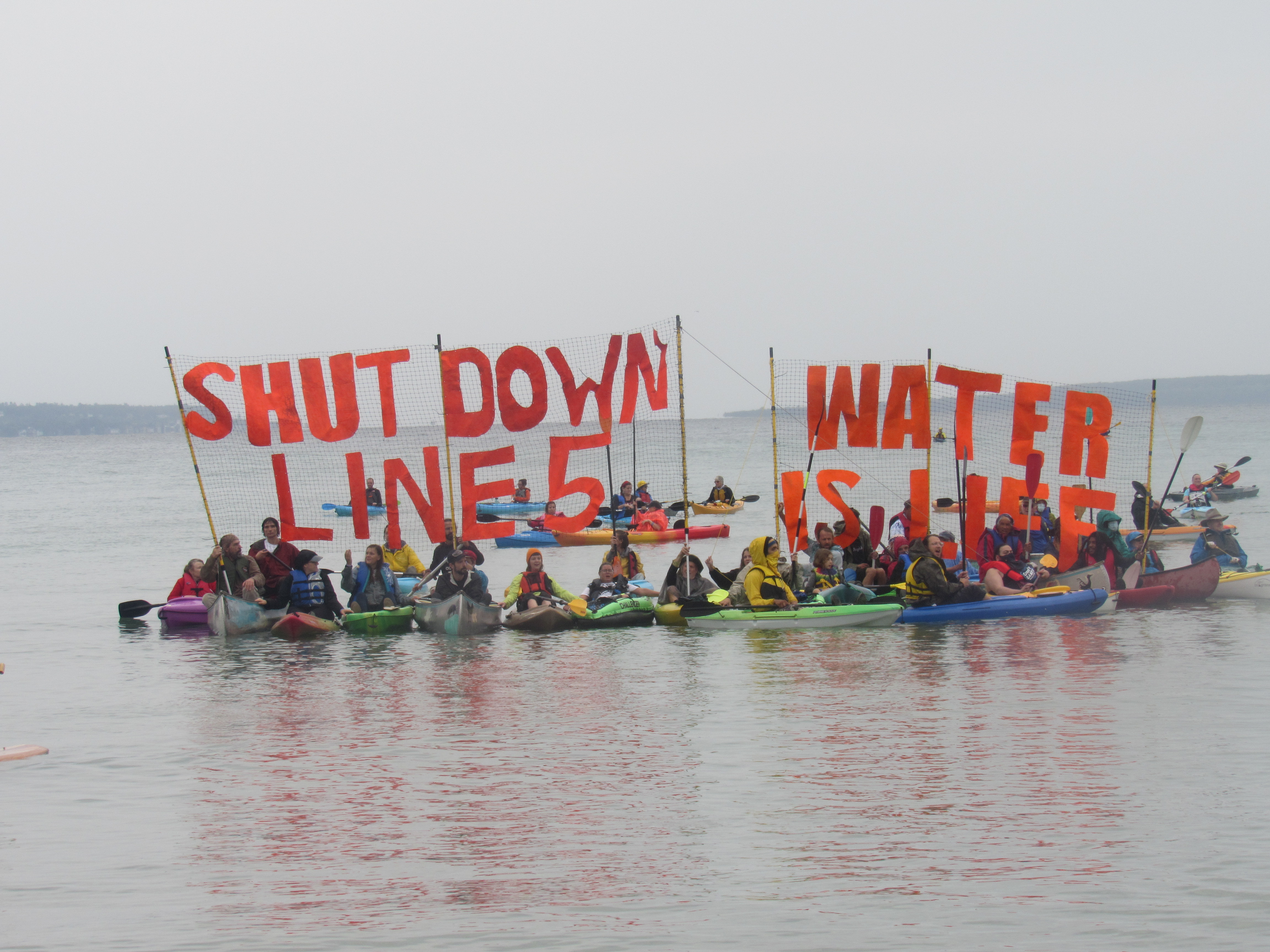
- Details
- By Neely Bardwell
The Bad River Band of Lake Superior Chippewa in northern Wisconsin has filed two legal challenges to protect water resources in the Bad River and coastal wetlands. The re-route of Line 5 would go through at least 186 waterways and 101 acres of high-quality wetlands that drain into Lake Superior.
The Band filed a lawsuit against the Wisconsin Department of Natural Resources (DNR) for producing an inadequate final Environmental Impact Statement on the reroute, which violates the Wisconsin Environmental Protection Act.
“In my view, the Department of Natural Resources (DNR) failed our children when it gave Enbridge the permits to build this reroute. They failed to consider the company’s multiple disasters in Minnesota and in Michigan, which are still being cleaned up,” said Bad River Band Chairman Robert Blanchard in a statement. “They failed to consider our Tribe, our water quality, and the natural resources of the entire Bad River watershed. As a tribal chairman and an elder, it’s my responsibility to protect the generations still to come. That is why we are fighting this reroute in court.”
Enbridge is responsible for the recent and largest oil spill recorded in Wisconsin history. Tribes, environmental organizations, and community members are encouraged to attend the public hearings below.
As Wisconsin tribes push back on the recent Wisconsin Department of Natural Resources’ (DNR) permit for the Enbridge Line 5 oil pipeline re-route, Wisconsin courts are holding public hearings on the matter.
May 13 & May 14. All interested parties are welcome to listen to the virtual hearing sessions from 8 a.m. - 5 p.m. CST on May 13th and 10 a.m. - 7 p.m. CST on May 14th. Verbal statements from members of the public may be provided at the May 14th virtual hearing session between 1 p.m. - 7 p.m. CST. Instructions on how to access the virtual hearing, as well information on how to register to provide verbal testimony on May 14th, will be posted at https://www.mvp.usace.army.mil/Enbridge_Line5-WI/ at least one week prior to the hearing.
August 12: Public hearing in Ashland (Northwood Technical College, 2100 Beaser Ave). Members of the public can testify in person about WDNR’s permits, but they may be cross-examined by attorneys.
September 3-12: Trial-like hearing in Madison (Hill Farms State Office Building, in Room S149, 4822 Madison Yards Way). Environmental groups will present their case. Members of the public can testify in person about WDNR’s permits on Sept. 3rd, but they must identify themselves at the August 12th hearing, and they may be cross-examined by attorneys.
September 15-19: Trial-like hearing in Ashland (Northwood Technical College, 2100 Beaser Ave). The Band will present witnesses challenging the adequacy of WDNR's approval for the re-route. Individuals can observe, but cannot testify.
September 22- October 3: If needed, this will be a trial-like hearing in Madison (Hill Farms State Office Building, in Room S149, 4822 Madison Yards Way). Enbridge and WDNR will present their cases. Individuals can observe, but cannot testify.
More Stories Like This
Gwich'in Tribal Governments Submit Comments Challenging Fish and Wildlife Service's Inadequate Environmental Review of Arctic Refuge Snow RoadRappahannock Tribe Challenges 9M-Gallon Water Plan
Feds release draft long-term plans for Colorado River management
Apache Leader Walks 60 Miles to Court Hearing That Will Decide Fate of Sacred Oak Flat
Rappahannock Tribe Raises Sovereignty and Environmental Concerns Over Caroline County Water Permit
Help us defend tribal sovereignty.
At Native News Online, our mission is rooted in telling the stories that strengthen sovereignty and uplift Indigenous voices — not just at year’s end, but every single day.
Because of your generosity last year, we were able to keep our reporters on the ground in tribal communities, at national gatherings and in the halls of Congress — covering the issues that matter most to Indian Country: sovereignty, culture, education, health and economic opportunity.
That support sustained us through a tough year in 2025. Now, as we look to the year ahead, we need your help right now to ensure warrior journalism remains strong — reporting that defends tribal sovereignty, amplifies Native truth, and holds power accountable.
 The stakes couldn't be higher. Your support keeps Native voices heard, Native stories told and Native sovereignty defended.
The stakes couldn't be higher. Your support keeps Native voices heard, Native stories told and Native sovereignty defended.
Stand with Warrior Journalism today.
Levi Rickert (Potawatomi), Editor & Publisher


